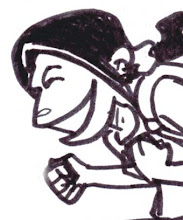
Bob Marley (born Nesta Robert Marley, 6.2.1945, died 11.5.1981)
Bob Marley was a Jamaican reggae singer and songwriter.
Bob Marley: Childhood
Bob Marley was born in the Jamaican village of Nine Mile, Saint Ann Parish. His first two names were later swapped around by a passport official. His father was Norval Sinclair Marley, a marine officer and a white English-Jamaican. His mother was Cedella Booker. As a child, Marley was often the target of racial abuse, due to his mixed-race heritage.
Whilst at school, Bob became friends with Neville "Bunny" Livingston, Peter McIntosh (Peter Tosh) and Joe Higgs and at 14, left school to make music with Higgs.
Bob Marley: Early Career & The Wailers
Bob Marley's first two singles were recorded in 1962. 'Judge Not' and 'One Cup of Coffee' were both released under the name Bobby Martell. Though they were not hugely popular at the time, the songs were later included on the Songs of Freedom box set.
The next year, he formed a band named The Teenagers, along with Peter Tosh, Bunny Livingston, Junior Braithwaite, Cherry Smith and Beverley Kelso. The band played ska music and later altered their name to The Wailing Rudeboys. A further change saw them renamed as The Wailers. Braithwaite, Smith and Kelso had all left the band by 1966. Some of The wailer's earliest recorded work was done alongside Lee Scratch Perry and his band The Upsetters.
The Wailers' debut album was released in 1973. Catch a Fire was then followed up by Burnin', which featured 'I Shot The Sheriff' and 'Get Up Stand Up'. Two of Marley's most famous songs. In 1974, the band broke up and all three members pursued solo careers.
Bob Marley continued performing, with a new band, under the name Bob Marley and the Wailers. His wife, Rita Marley, featured in his band of back-up singers, known as the I-Threes.
Marley's first international hit came with 'No Woman, No Cry', which featured on the album Natty Dread. The next album, Rastaman Vibration, lasted four weeks in the US album charts' Top 10.
Toward the end of 1976, Bob Marley travelled to England. There, he recorded Exodus and Kaya. Exodus was by far the more successful of the two, remaining on the UK album charts for over a year.
Marley's live performances were often highly revered. His double live album, Babylon By Bus, was well received by critics at the time of its release.
In 1979, Marley released Survival, which featured tracks such as 'Africa Unite' and 'Wake Up and Live'. In 1980, Marley was invited to perform at Zimbabwe's Independence Day celebrations.
Bob Marley's final studio album was Uprising. Released in 1980, the album featured some of Marley's most religious work, such as 'Redemption Song'.
In 1983, following Marley's death in 1981, a collection of his unreleased work was released, under the name Confrontation.
In 1994, Bob Marley was inducted into the Rock and Roll Hall of Fame.
Bob Marley: Illness & Demise
Marley was diagnosed with a malignant melanoma on his toe in July 1977. Following his Rastafarian beliefs to the letter, he refused amputation. The cancer spread to his liver, brain and lungs. In 1980, he collapsed whilst jogging in Central Park, NYC.
Bob Marley's final concert was in September 1980, in Pittsburgh, Pennsylvania.
Marley died in Miami, Florida, where he had stopped for immediate medical attention. He was aged only 36. The cause of death was the spread of the melanoma to his lungs and brain. He received a state funeral in Jamaica, ten days after his death.
